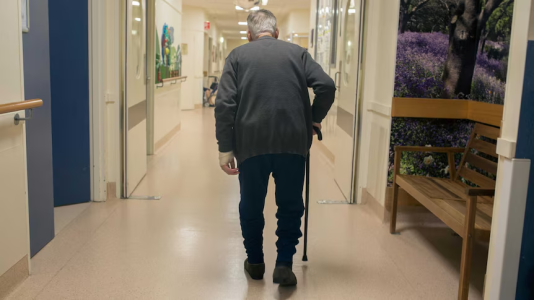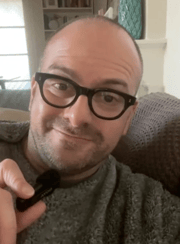Donanemab approved in Australia for treatment of Alzheimer's disease
By
ABC News
- Replies 0
A drug that's been found to slow the progress of Alzheimer's disease by clearing proteins in the brain has been approved for use in Australia.
The Therapeutic Goods Administration (TGA) has approved a drug called Donanemab for those with mild cognitive impairment or mild dementia due to Alzheimer's disease.
The drug is given as an intravenous infusion through the arm every four weeks for a maximum of 18 months, and clinical trials have shown it can help in the early stages of Alzheimer's disease.
It is not a cure and doesn't stop cognitive decline, but it can slow the disease and allow people to have a better quality of life for longer.
But the drug, which is already approved in the UK and the US, is not listed on the Pharmaceutical Benefits Scheme at this stage, which means it is not subsidised by the government and will cost anywhere between $40,000 and $80,000 a year to administer.
Researchers said the fact it had been TGA-approved was huge news for the dementia community, especially after a similar treatment called Lecanemab was refused registration by the TGA last year due to safety risks.
Alzheimer's is characterised by two proteins that accumulate in the brain, amyloid and tau.
Donanemab works by clearing amyloid which can disrupt the brain's neurons and prevent messages from travelling normally.
The drug is an antibody that attaches itself to the amyloid and activates the immune system in the brain to clear the amyloid.
Alzheimer's is the most common type of dementia, which is the leading cause of death for Australian women and the second most common for men.
Head of dementia research at the Memory Clinic at Melbourne's Austin Health, Michael Woodward, said it was a "very important development" because until now drugs had only been mildly effective in targeting symptoms and not the underlying disease.
For some people with low to moderate disease progression, Donanemab can remove amyloid to a level that is below the threshold for diagnosis, said Professor Woodward, who was an investigator on the Donanemab clinical trials.
"It slows the deterioration by about 30 per cent and that's very important because if you have Alzheimer's you're likely already in your 70s or 80s and to have another six or 12 months of being able to function, help with the grandkids, go to events, remember day-to-day activities — that's going to significantly improve your life."
It doesn't work for those with moderate to severe dementia because the amyloid build-up is too severe by that stage.
"It's not a cure and we need to manage expectations but it's the very start of therapies I hope we will have and it is a chink in the armour," Professor Brodtmann said.
Donanemab is not without its risks. Its two major side effects are brain swelling and bleeding.
It is thought that this can be the result of an over-activation of the brain's immune mechanisms.
During clinical trials three people died from brain swelling or bleeding and around one-quarter of participants showed some form of swelling.
Professor Brodtmann said the complications often presented with no symptoms so regular MRI scans were necessary to ensure early detection of any side effects.
"I'm reassured by the fact there were very few people who had to discontinue the trial due to swelling or bleeding but we need to make sure people are being appropriately monitored."
Anyone who has two copies of an Alzheimer's risk gene called ApoE4 is at a higher risk of brain swelling and bleeding and cannot take Donanemab so it is a TGA requirement that any patient considering the drug must have genetic testing to check for this gene.
Professor Brodtmann, who was involved in clinical trials and on the scientific advisory board for Donanemab, said there would be a network of cognitive services in most cities around Australia to administer the drug privately.
The pharmaceutical company that makes the drug, Eli Lilly, said an application for Donanemab to be listed on the PBS would be reviewed by the advisory committee in July.
Donanemab was licensed for use in the UK last year but is still only available privately as it was not deemed to be cost-effective enough to be subsidised by the National Health System (NHS).
By the Specialist Reporting Team's Paige Cockburn
The Therapeutic Goods Administration (TGA) has approved a drug called Donanemab for those with mild cognitive impairment or mild dementia due to Alzheimer's disease.
The drug is given as an intravenous infusion through the arm every four weeks for a maximum of 18 months, and clinical trials have shown it can help in the early stages of Alzheimer's disease.
It is not a cure and doesn't stop cognitive decline, but it can slow the disease and allow people to have a better quality of life for longer.
But the drug, which is already approved in the UK and the US, is not listed on the Pharmaceutical Benefits Scheme at this stage, which means it is not subsidised by the government and will cost anywhere between $40,000 and $80,000 a year to administer.
Researchers said the fact it had been TGA-approved was huge news for the dementia community, especially after a similar treatment called Lecanemab was refused registration by the TGA last year due to safety risks.
Alzheimer's is characterised by two proteins that accumulate in the brain, amyloid and tau.
Donanemab works by clearing amyloid which can disrupt the brain's neurons and prevent messages from travelling normally.
The drug is an antibody that attaches itself to the amyloid and activates the immune system in the brain to clear the amyloid.
Alzheimer's is the most common type of dementia, which is the leading cause of death for Australian women and the second most common for men.
Head of dementia research at the Memory Clinic at Melbourne's Austin Health, Michael Woodward, said it was a "very important development" because until now drugs had only been mildly effective in targeting symptoms and not the underlying disease.
For some people with low to moderate disease progression, Donanemab can remove amyloid to a level that is below the threshold for diagnosis, said Professor Woodward, who was an investigator on the Donanemab clinical trials.
"It slows the deterioration by about 30 per cent and that's very important because if you have Alzheimer's you're likely already in your 70s or 80s and to have another six or 12 months of being able to function, help with the grandkids, go to events, remember day-to-day activities — that's going to significantly improve your life."
It doesn't work for those with moderate to severe dementia because the amyloid build-up is too severe by that stage.
Side effects need close monitoring
Amy Brodtmann, who leads the Cognitive Health Initiative at Monash University, compared the approval of Donanemab to when antivirals were first introduced to slow the progression of HIV."It's not a cure and we need to manage expectations but it's the very start of therapies I hope we will have and it is a chink in the armour," Professor Brodtmann said.
Donanemab is not without its risks. Its two major side effects are brain swelling and bleeding.
It is thought that this can be the result of an over-activation of the brain's immune mechanisms.
During clinical trials three people died from brain swelling or bleeding and around one-quarter of participants showed some form of swelling.
Professor Brodtmann said the complications often presented with no symptoms so regular MRI scans were necessary to ensure early detection of any side effects.
Anyone who has two copies of an Alzheimer's risk gene called ApoE4 is at a higher risk of brain swelling and bleeding and cannot take Donanemab so it is a TGA requirement that any patient considering the drug must have genetic testing to check for this gene.
Professor Brodtmann, who was involved in clinical trials and on the scientific advisory board for Donanemab, said there would be a network of cognitive services in most cities around Australia to administer the drug privately.
The pharmaceutical company that makes the drug, Eli Lilly, said an application for Donanemab to be listed on the PBS would be reviewed by the advisory committee in July.
Donanemab was licensed for use in the UK last year but is still only available privately as it was not deemed to be cost-effective enough to be subsidised by the National Health System (NHS).
By the Specialist Reporting Team's Paige Cockburn








